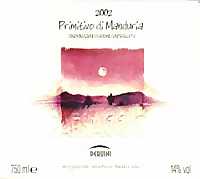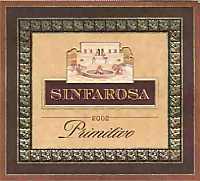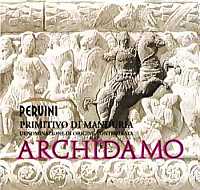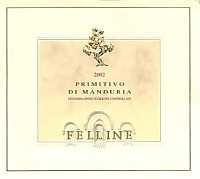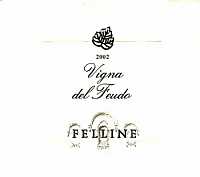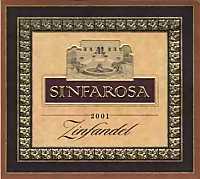|
Accademia dei Racemi was established in 1998 by Gregory Perrucci and his wife
Elisabetta Gorla in the aim of revaluating the enological heritage of Apulia
and in particular the local grapes that, at those times, seemed to be destined
to the production of “bulk wines” only. Accademia dei Racemi is an
organization which groups passionate viticulturists, agronomists and wine makers
with the goal of promoting the production of quality wines made in Apulia.
Among the duties there is also the one of selecting the most interesting and
promising sites and vineyards of the region, involving their proprietors in
this project while assisting them in the viticultural and wine making practices
by offering the help of qualified wine makers and technicians. The work of
Accademia dei Racemi is particularly focused on the local varieties, among them
Primitivo, Negroamaro and Malvasia Nera, as well as less known varieties such
as Susumaniello and Ottavianello, a variety known in France as Cinsaut.
In just five years Accademia dei Racemi has significantly contributed to the
revaluation of the enological dignity of Apulia - a region with one of the
most ancient enological traditions of Italy - and thanks to specific researches
and remarkable efforts, it contributed to the revaluation of local varieties,
including the now famous Primitivo. Ten years ago or so, Primitivo was simply
cultivated with the purpose of producing bulk wines to be destined to other
Italian and European regions, and this seemed to be its inexorable and unjust
destiny. The initial goal of Accademia dei Racemi was to revaluate this grape,
a goal that is now fully accomplished. The will of promoting Primitivo to the
levels it certainly deserved was the reason of a research done by a group of
experts who initially had to face a reality that was capable of making neutral
and alcoholic wines only, that is products that could be easily sold as bulk
wines.
|
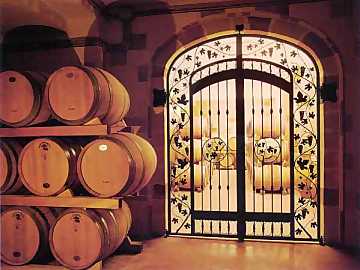 | |
| A view of the cellars | |
|
Today the wineries represented by Accademia dei Racemi are Pervini, Sinfarosa,
Tenute Pozzopalo, Felline, Masseria Pepe and Casale Bevagna, wineries which
offer a very good selection of wines made of Primitivo. The history of this
grape is rather interesting and the researches done have finally allowed to
clear the doubts about this powerful red grape seemed to conceal in every
berry. The case “Primitivo” began to catch the attention of wine lovers and
producers when it was discovered it was genetically equal to Zinfandel, a red
berried grape very common in California. The paradox was that in California
were produced wines with Zinfandel that were considered of high quality,
whereas Primitivo was simply considered as a grape suited for the production of
bulk wines. Aware of the potentialities of Primitivo, both because of
historical and local traditions and because of the confirmation provided by
Zinfandel, Accademia dei Racemi was convinced more than ever to the revaluation
of this grape.
Further researches have proved that both Primitivo and Zinfandel are grapes of
Croatian origin and are genetically equal to Plavac Mali. Researches have also
discovered that all these grapes derive from a unique progenitor, Zagarese,
originating from the Balkans and probably introduced in Apulia at the end of
the seventeenth century by some Slav people migrated to the region. Convinced
of the potentialities of Primitivo and of its enological tradition in the
Apulian territory, Accademia dei Racemi started a project also thanks to the
help of a team of experts and collaborators, each one of them determined to
accomplish the goal of revaluating and giving back the right dignity to
Primitivo. In the rooms of the Cooperative Cellar was created a research and
micro-vinification laboratory in order to study and evaluate the characteristics
of the many crus of Primitivo di Manduria, also thanks to the
contributions of producers who conferred Accademia dei Racemi a small part of
their vineyards. This practice became an important aspect of Accademia dei
Racemi, where the management of the vineyard and of cellaring practices is done
by qualified personnel who select the best grapes and terroirs in order
to obtain a quality wine production.
The research on Primitivo, based on a meticulous zonation, gave birth to
Felline (vineyards cultivated in red soils), Sinfarosa (black soils) and Dunico
(sand). The production of the many Primitivos is based on historical witnesses
of Manduria, the Apulian town where Primitivo is mainly common, which
emphasized the differences among the wines produced in vineyards near the sea,
in black soils and in red soils. The precious scientific activity and the
researches done by Accademia dei Racemi on Primitivo, and in particular on its
connections with Zinfandel, has allowed the Mandurian winery to reach truly
prestigious goals. Accademia dei Racemi is the only non American winery that
was admitted to ZAP (Zinfandel Advocates and Producers), an association
that every year organizes a prestigious tasting at San Francisco and which is
attended by all Zinfandel lovers of America.
Primitivo is not the only grape that interests Accademia dei Racemi. In the
province of Lecce have been individuated particular vineyards of Negroamaro and
Malvasia Nera from which has been produced the renowned wine Te Deum Laudamus.
In the province of Brindisi, near Torre Guaceto, has been planted a 10 hectares
vineyards (about 25 acres) of Ottavianello, an almost extinct grape in Apulia
and known in France and elsewhere as Cinsaut, as well as valuable Apulian
autochthonous varieties, such as the interesting Susumaniello. The remarkable
and precious activity of Accademia dei Racemi for the revaluation of the
heritage of grapes and wines of Apulia also includes the production of
Aglianico and the excellent Moscato Reale di Trani. In the aim of promoting the
culture and the spreading of Apulian wine, Accademia dei Racemi has also
started at Mesagne, in the province of Brindisi, a wine shop where it is
possible to appreciate and know the richness and the historical enological
heritage of the region. Today Accademia dei Racemi has 120 hectares of
vineyards (about 300 acres) in the Salento area (Manduria, Brindisi and Cellino
San Marco) and its work of revaluating the historical memory of a rich land
such as Apulia has been successfully accomplished. The result achieved by
Accademia dei Racemi, made of research, determination and respect for its land,
is worthily represented by the quality of its wines, while proving that
intelligence and the correct use of resources, even of those grapes once
considered “modest and humble” are instead capable of giving intense emotions
and valuable wines.
|


